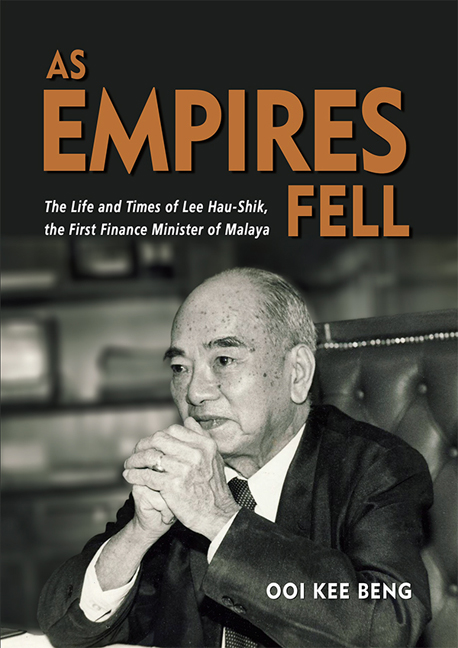Chapter 5 - Politics in a Messy New World
Published online by Cambridge University Press: 24 November 2020
Summary
The average person in Southeast Asia has little knowledge of, or interest in, foreign policy. Attitudes towards foreigners are often based on personal contacts. […] Nevertheless, events are moving rapidly in Southeast Asia, and generalizations that may be true at present may not be valid in the not too distant future. Attitude-forming groups—religious, educational, military, labor, and others—as well as political parties are active in varying degrees of intensity.
—Russell H. Fifield, 1958THESE WERE tumultuous times, and the World War that was now ended ushered into being a world that none could recognize. Not only did individuals have to adapt to new situations, the political map of eastern Asia was about to change dramatically, and new security alliances were emerging that would include actors whose birth, one could say, was fanned by the fires of war. Conditions in Malaya changed as much with events happening in the region and the world as they were by domestic dynamics. The age of nation states had arrived in Asia.
As Josef Silverstein noted, the Japanese invasion of Southeast Asia had a profound impact on all affected by it. No doubt, conditions were very different in different countries, but despite that, with some “modification and reformulation” here and there, some general propositions can be made on the matter:
(1) The swift victories of the Japanese over the colonial defenders destroyed the myth of Western superiority and the need for alien guardians in these countries, (2) the goodwill of local populations toward the Japanese at the outset of the occupation gradually turned to hostility in the face of the invaders’ cruelty and neo-colonial policies, (3) nationalism, which had first appeared before the war, accelerated under Japanese rule and emerged at war's end as the most powerful force in Southeast Asian politics, (4) evolutionary social change metamorphosed into revolutionary upheaval, producing new attitudes, awareness, organizations, and occupations, and (5) the local population gained experience in administration, political organization, and military affairs, with a resultant confidence in their ability to govern and defend themselves.
European colonialism in the region had in fact been dealt a death blow by the Japanese invasion. But what would take its place was far from certain. Amid the chaos of surrender, the badly weakened European powers tried their utmost to regain their former territories in Southeast Asia.
- Type
- Chapter
- Information
- As Empires FellThe Life and Times of Lee Hau-Shik, the First Finance Minister of Malaya, pp. 117 - 140Publisher: ISEAS–Yusof Ishak InstitutePrint publication year: 2020



